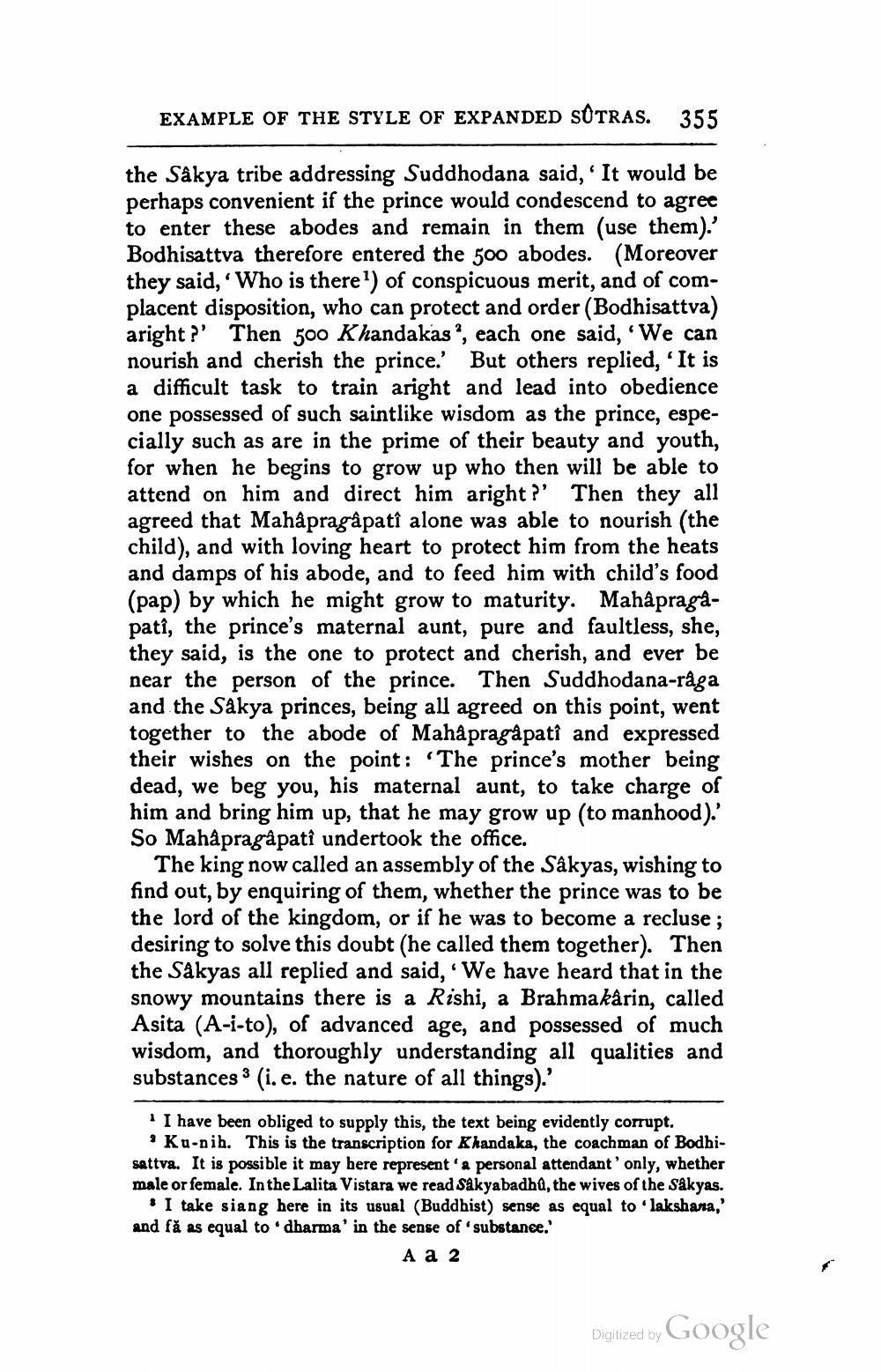________________
EXAMPLE OF THE STYLE OF EXPANDED SOTRAS. 355
the Säkya tribe addressing Suddhodana said, ' It would be perhaps convenient if the prince would condescend to agree to enter these abodes and remain in them (use them).' Bodhisattva therefore entered the 500 abodes. (Moreover they said, 'Who is there') of conspicuous merit, and of complacent disposition, who can protect and order (Bodhisattva) aright?' Then 500 Khandakas?, each one said, 'We can nourish and cherish the prince.' But others replied, 'It is a difficult task to train aright and lead into obedience one possessed of such saintlike wisdom as the prince, especially such as are in the prime of their beauty and youth, for when he begins to grow up who then will be able to attend on him and direct him aright?' Then they all agreed that Mahapragâpatî alone was able to nourish (the child), and with loving heart to protect him from the heats and damps of his abode, and to feed him with child's food (pap) by which he might grow to maturity. Mahapragapatî, the prince's maternal aunt, pure and faultless, she, they said, is the one to protect and cherish, and ever be near the person of the prince. Then Suddhodana-råga and the Sakya princes, being all agreed on this point, went together to the abode of Mahapragàpatî and expressed their wishes on the point: "The prince's mother being dead, we beg you, his maternal aunt, to take charge of him and bring him up, that he may grow up (to manhood).' So Mahapragapati undertook the office.
The king now called an assembly of the Sâkyas, wishing to find out, by enquiring of them, whether the prince was to be the lord of the kingdom, or if he was to become a recluse; desiring to solve this doubt (he called them together). Then the Sakyas all replied and said, 'We have heard that in the snowy mountains there is a Rishi, a Brahmakârin, called Asita (A-i-to), of advanced age, and possessed of much wisdom, and thoroughly understanding all qualities and substances (i.e. the nature of all things).
"I have been obliged to supply this, the text being evidently corrupt.
Ku-nih. This is the transcription for Khandaka, the coachman of Bodhisattva. It is possible it may here represent a personal attendant' only, whether male or female. In the Lalita Vistara we read Sakyabadhd, the wives of the Såkyas.
I take siang here in its usual (Buddhist) sense as equal to lakshana,' and fă as equal to .dharma' in the sense of substance.'
Аа 2
Dişlized by Google




